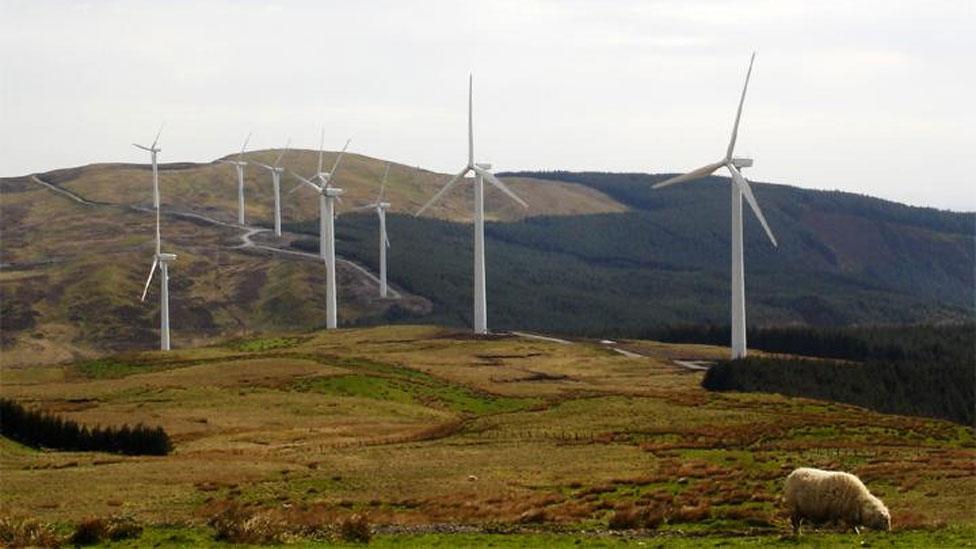Climate change: 'Big shift' on carbon emissions urged
- Published
- comments
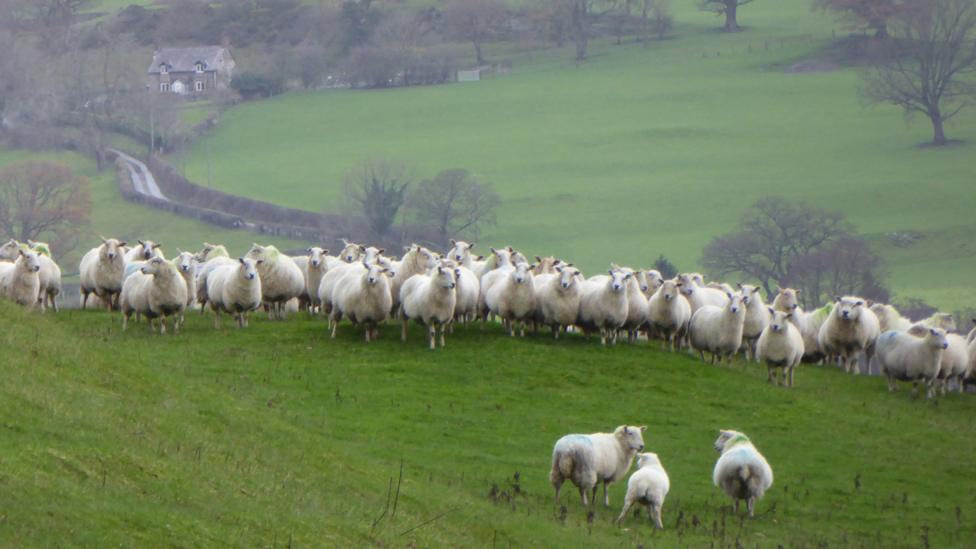
There are 9.5 million sheep and lambs in Wales and 1.1 million cattle and calves, which add to greenhouse gas emissions
Wales should set a target to cut carbon emissions by 95% by 2050, compared with 1990 levels, the UK government's climate advisory body has said.
It wants to cut numbers of sheep and cattle, plant more trees and encourage heavy industry to clean up.
Chris Stark, chief executive of the UK Committee on Climate Change (CCC), said: "It's a big shift, but one which we think is achievable".
The Welsh Government said it would "consider the advice in full".
It is more than the 80% target set by Welsh Government in 2016.
But it is less than the "net-zero" target recommended for the UK by 2050 and one leading environmental charity said more could be done.
CCC, which set out what it called an "ambitious new target" for Wales, is taking into account particular issues facing the nation around its farming, steel and power industries.
Some of the gases which heat the atmosphere and contribute to climate change are by products of agriculture, including methane from cows and sheep, and ammonia from fertiliser.

The main recommendations, external are:
Grassland for animal grazing takes up 74% of land, but CCC believes this could be reduced by about 25% by 2050
A positive contribution to carbon levels would come from increasing land for forestry by about 70%
Wales has a higher share of total emissions (30%) from industry compared with the UK as a whole (22%), but CCC said its analysis suggested emissions could be reduced in the long term
The recycling rate could rise further - from 60% to 70% by 2025 - there is already a target of 100% by 2050
The CCC believes the 95% target cannot be delivered by Welsh Government policy alone and needs both UK-wide and devolved policies to "ramp up significantly".
If the UK does not commit to the net-zero greenhouse gas target, Wales may need to set a looser target.
These climate activists in Cardiff Bay say there needs to be big changes in how we live
It also wants to see walking and cycling encouraged, advice on retro-fitting buildings to make them energy efficient, and encouraging low-carbon manufacturing.
Everyone will be expected to play their part in the way they live their lives but, CCC believes this is achievable.
The analysis suggests meeting the carbon budget requirements will add £85 to £120 to annual fuel bills up to 2030, but these can be more than offset by energy efficiency improvements.
Mr Stark said: "The agricultural sector will find it tougher to get to zero emissions but it's a huge shift.
"People are going to have to find a way of heating their homes and travelling on Welsh roads without burning fossil fuels in their cars - all of these things involve technologies and societal shifts that we know about and they shouldn't be feared, but we need the UK and Welsh governments to put the policies in place to deliver it."
Haf Elgar, director of Friends of the Earth Cymru, said: "We can be more ambitious - why should we do less than the UK? Scotland has been leading the way with renewable energy but I didn't think that's a reason we can't catch up."
The Welsh Government welcomed the advice having declared a climate emergency this week, but said it had now agreed to review its 2050 target and report back to the assembly before setting the third carbon budget in 2020.
Environment Minister Lesley Griffiths - who was not available for interview - said the advice recognised a "collective approach" across the UK was needed and Wales would encourage action from the UK government in areas where it holds significant control over Welsh emissions.
"However, in galvanising action from all levels of government, communities and sectors, we will take a lead and meet the calls for action of people of all ages concerned about the impacts of climate change," she added.

Analysis - Steffan Messenger, BBC Wales environment correspondent
As the graph in this article highlights, achieving a 95% cut in emissions from Wales is a big ask - but it can and must be done, experts say.
The Welsh Government says it will study the advice, but will come under considerable pressure to adopt the new target.
It has already faced accusations of not acting quickly enough, with a voluntary target to cut emissions by 40% by 2020 set to be missed by some distance.
Figures show emissions fell here by 19% in 2015, compared with a 38% cut across the UK as a whole.
This is partly down to issues beyond the control of ministers in Cardiff Bay, though today's report makes clear there is much more that can be done using devolved powers.
Opposition parties in the assembly have highlighted that a 100-point plan to tackle climate change, launched last month, was mainly produced from existing policies.
If this week's declaration of a climate emergency by the Welsh Government is to mean anything, they say new, far-reaching proposals need to be published soon.
Scottish ministers have already said they will put the new target they've received - to achieve "net-zero" emissions by 2045 - into law.

A new estate being built in Tonyrefail will combine design and renewable energy generation in 225 homes
Cutting carbon in future housing
A development in Tonyrefail, Rhondda Cynon Taf, aims to show how energy efficiency in homes can be taken to a new level - and done at scale.
The 225 houses at Parc Eirin will be powered by renewable energy, including solar but will also be able to store energy - so it can be used at peak times. They will also use no gas and get their heating from underground heat pumps.
The Welsh Government is backing the development through its innovative housing programme., external
"There is an additional cost - but actually we reduce the running costs for people going forward, we reduce carbon, we're enabling low-carbon transport - every home on this site will have an electric vehicle charging point," said James Williams, managing director of SeroEnergy, which is part of the project.
Ian Price, CBI Wales director, said: "Given Wales' history of heavy industry, coal mining and agricultural production, we are pleased to see a recommended target of 95% greenhouse emissions reduction by 2050.
"This target accurately represents the reality Wales finds itself in, on the journey towards overall carbon neutrality. Welsh businesses welcome the CCC's advice and are keen to see a supportive, timely response from the Welsh Government so both they and the public can get on with reaching it."
- Published2 May 2019

- Published29 April 2019
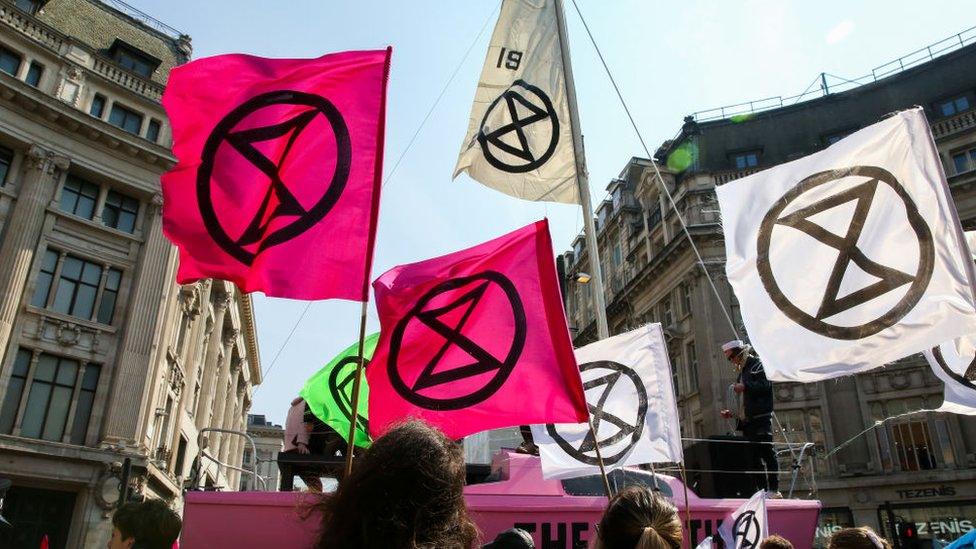
- Published4 December 2018

- Published12 May 2016
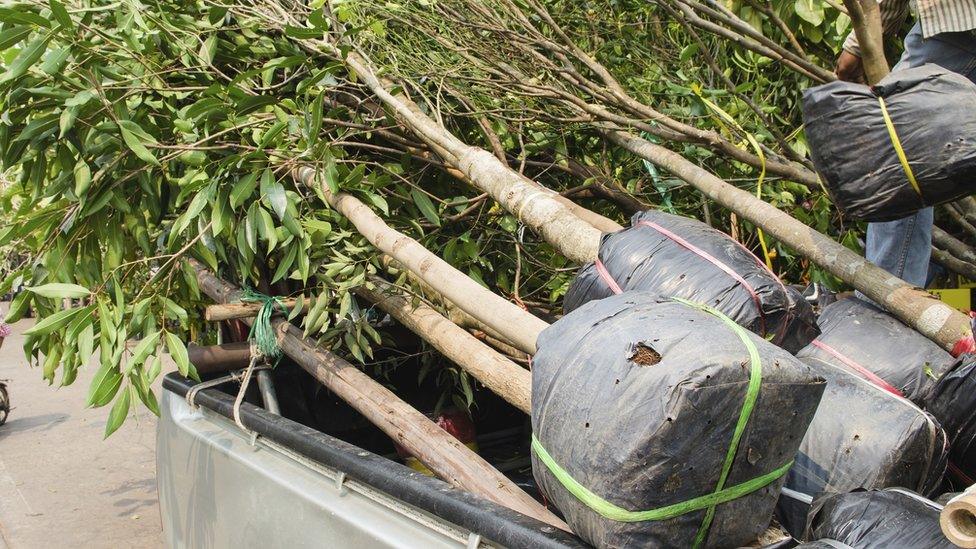
- Published3 December 2018
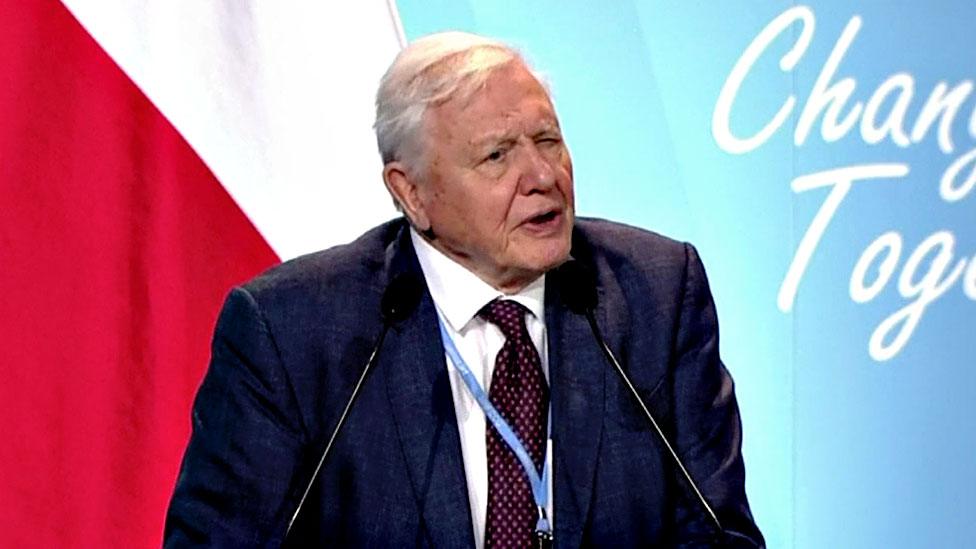
- Published14 January 2020
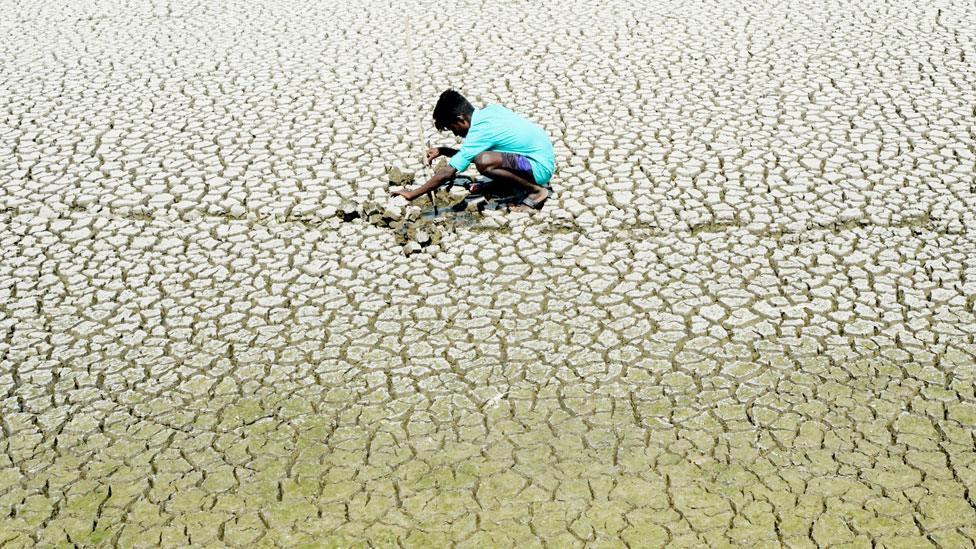
- Published8 October 2018

- Published19 December 2017
